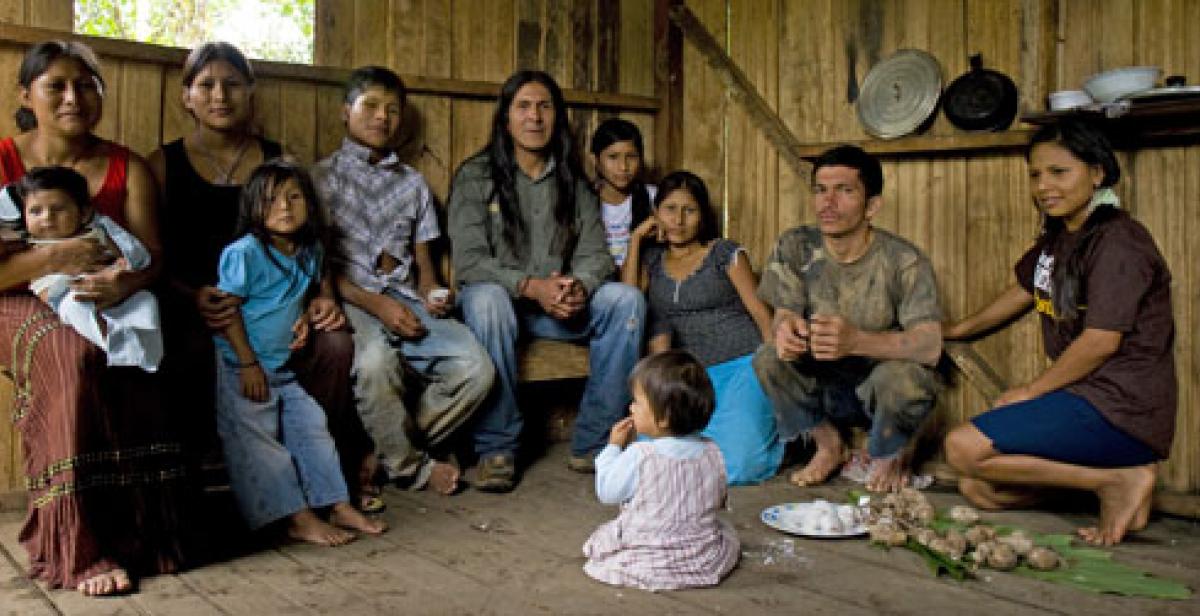This week the High Level Panel (HLP) on the Post-2015 Development Agenda is meeting in London. Each of the Panel’s co-chairs will host a meeting discussing a particular theme, which will inform the Panel’s final report, to be published in May 2013. First up is David Cameron who will host the HLP in London between Tuesday and Friday, when discussions will focus on ‘household poverty’.
The ‘post-2015 development agenda’ refers to the successor framework to the Millennium Development Goals (MDGs) which will expire on 31 December 2015. The High Level Panel has been established by the UN Secretary General Ban Ki Moon to advise member states on the vision and content of the development agenda beyond 2015. The panel is made up of government, civil society and business leaders, including Nobel peace prize winner Tawakkul Karman of Yemen and President Johnson Sirleaf of Liberia.
So what is Progressio calling for as the HLP meets this week?
The participation of poor and marginalised communities
It is essential that the HLP turns rhetorical commitments to consult the poorest people in the world into action and fast. The clock is ticking, yet, to date, there has been a one week online consultation, and the national consultations being co-ordinated by the UN have been extremely slow to get off the ground.
A major criticism of the MDGs is that the indicators were not created through consultative processes. Lack of participation by the communities whom the MDGs were designed to assist has led to questions around legitimacy and ownership of the goals and the apparent imposition of a development agenda on developing countries by developed countries. The next iteration must be a framework that empowers people to identify their priorities and hold their governments to account for the commitments that are made
The development of the framework must be completely open and transparent, participatory, inclusive and responsive to the voices of those living at the sharp end of poverty and vulnerability; who are not only the most affected but are also the key players in the solution.
Progressio is poised ready to contribute through strong partnerships at grass roots level in the countries where we work.
A bold and ambitious yet achievable framework that delivers poverty eradication and sustainable development
We’re aware that this is no easy feat. In fact it’s extremely complex. The post-2015 development agenda must be transformative. Whatever replaces the MDGs must drive forward development that is sustainable, fair and equitable.
But this requires new thinking on economic models, to new models that take account of critical thresholds on natural resources and make the ability of every individual to live a dignified life the primary aim. It’s easy to see how some are worried with so much action required on so many issues. Indeed the post-2105 development framework has already been likened to a Christmas tree.
The MDG framework has been praised for focusing on a limited number of targets, which have galvanised action. For example MDG 1a to ‘Halve, between 1990 and 2015, the proportion of people whose income is less than $1 a day.’ There are strong calls to repeat this format with time-bound and quantifiable targets and indicators. But there must be a balance between big sound-bite worthy goals that are easier to achieve and targets that change the structures that keep people in poverty.
In conversation with Progressio staff in the countries where we work one thing has been very clear. We cannot wait until 2030 for action. Many of the communities that Progressio’s partner organisations work with in countries such as Yemen and Zimbabwe are facing immediate crisis as water scarcity affects food security, a situation that is exacerbated by the effects of climate change. It is imperative that the post-2015 development framework galvanises action from 1 January 2016.
We’ll be at several events as the HLP engages with civil society; however, we’re keenly aware that engagement with the most important stakeholders is yet to come.
Lis Martin is Progressio's Environment Policy Officer.
Photo: The Wajuyata family in Chiwitayo, province of Pastaza, Ecuador, photographed in 2009 - an example of the people and communities around the world who are overlooked and unheard in global policy debates. From left to right: Eloísa Moncayo, mother (40), Elizabeth Wajuyata, daughter (20), Tamara Wajuyata, daughter (4), Juri Wajuyata, son (17), Alfonso Wajuyata, father (52), Sara Wajuyata, daughter (11), Marta Wajuyata, daughter (19), Omar Vargas, friend (35), Guillermina Yano, niece (17) and (foreground) Domenica Wisum, granddaughter. (Photo © Santiago Serrano/Progressio)



